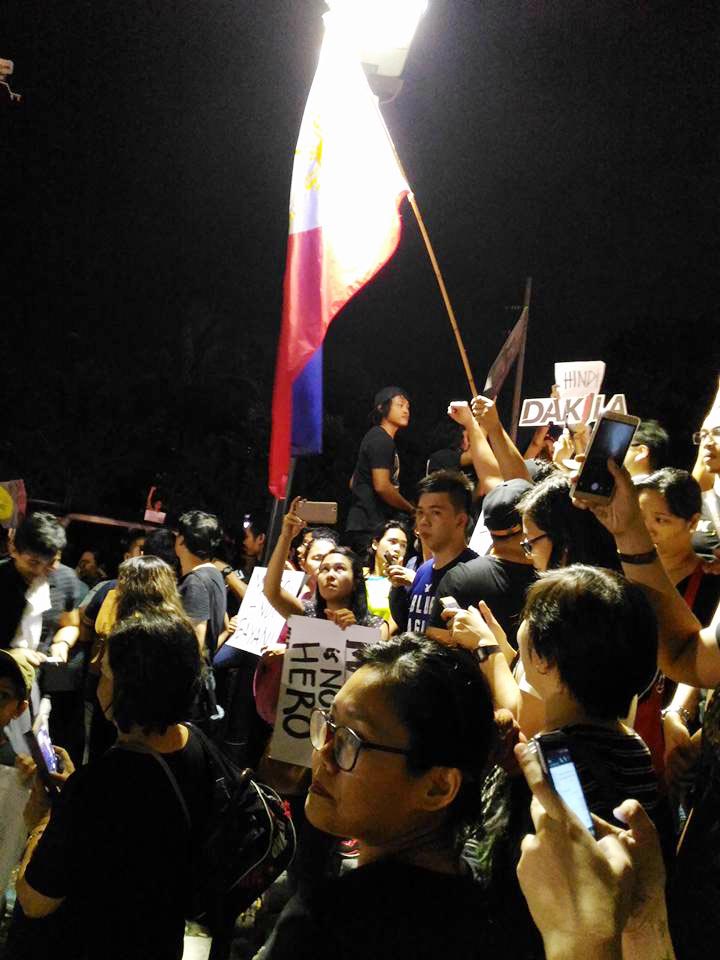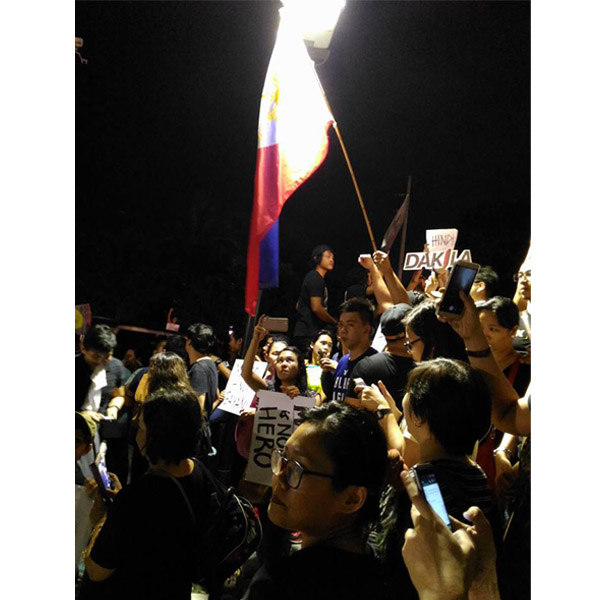First published in Tulay Fortnightly, Chinese-Filipino Digest
vol. 29 | no. 14 | December 20, 2016-January 16, 2017
A nation should not be judged by how it treats its highest citizens, but its lowest ones. – Nelson Mandela

There are numerous things that Meah and I want our children to learn. Foremost among them is love of country.
We sing “Lupang Hinirang.” We visit museums to learn about our history. We go on trips throughout the country and appreciate its breathtaking beauty. We read Filipino children’s books to the kids before bedtime, the stories ranging from Philippine legends, to the Katipunan to martial law. We send the kids to a school that is so nationalistic, this year’s school play is about a mother and daughter during martial law.
Disclaimer: My father was part of the Philippine Constabulary. I have never asked him what he did during martial law. I’m afraid of what his answer would be. It is too late now anyway to get an answer. But I do believe that the martial law years were dark times.
Growing up, I did not have to fear that the Metrocom would come and take my parents away. When the Metrocom did come, they came as guests for dinner. My fear instead was of my father being ambushed by the Sparrow unit of the New People’s Army, forcing me to take care of my siblings.
Fortunately, my fear never became a reality.
I laughed very hard at an “Austin Power” movie, when a henchman died from a steam roller and the family is informed by phone. The funniest jokes always have a grain of truth.
Does anyone care about the villains’ families left behind? (Actually, no, if that family has billions in ill-gotten wealth anyway. This family I’m referring to has taken very good care of themselves, thank you very much.)
I spent my childhood birthdays in Baguio every year, together with my father’s alumni homecoming at the Philippine Military Academy. The president was probably there every year as well.
The presence of the late dictator had no bearing for me then. All I knew was we got to ride horses at Burnham Park and play mini-golf at Camp John Hay.
Once, we even stayed at the Marcos’ San Fabian, Pangasinan beach resort after a vacation in Baguio. The first 10 years of my life were spent oblivious to martial law.
In the same way that a majority of the people in the provinces will say martial law was a more peaceful time; we only saw what the president wanted us to see.
My childhood was spent seeing the world through rose-colored glasses. I do not resent being sheltered. Childhood should be spent with a sense of security. There should be a feeling that despite everything happening in the world, someone is taking care of us.
But childhood can only last so long. EDSA happened and the dam of repressed truth came gushing forth. I was 10. It was a watershed moment – stories of those tortured and killed, stories of the desaparecidos, of missing students who were barely 18. Those students’concerns should have been about pimples and prom night, not the PC and pill boxes.
I was 10 and I had to reconcile the fact that my father was a PC officer and PC officers were known for human rights abuses during the martial law years.
In the university, I joined a socially-oriented organization and visited the Payatas slums on a weekly basis. By the time I was working, EDSA Dos happened. By then, I was already well-informed and had a stand.
It was a no-brainer when the text messages came. Go to EDSA we did. We were there at EDSA Dos helping however we can.
Who knew that one day, we would be back in EDSA crying out against the desecration of all the heroes that came before us?
One day, when the kids are all grown up, they will make their own decisions. But for now, they are our children and we expose them to what we stand for. In the same way that the Catholic infant baptism does not request permission from an infant, we are trying to steer the children towards the side we support.
The fact that we can confidently bring our kids to an indignation rally without fearing for their safety is a testament to how far we’ve gone with our people’s most basic of rights.
At the indignation rallies, they hear the chants and profanities. We force them to stay awake past their bedtime: I can’t carry a 9-year-old through a wave of people. They have packed water and food.
Sure they whine. They’re still children. But being present there allows them to make their own conclusions. They know it doesn’t make sense that a thief and murderer gets to be buried with heroes. Our 7-year-old said it best, “Marcos killed so many people, how can he be a hero?”
They go back to school and share their experiences with their friends who also went to the rally. Shobe came home on Nov. 29 and announced to her mother, “K, B and I are meeting at the rally tomorrow.”
So there we were, previous EDSA Dos participants, single back in the day, now with kids in tow.
We don’t want to be caught flat-footed when both kids, who go through the yearly mock-martial law activity in school, is shocked by what is happening to the entire country (again) and ask, “Why didn’t we speak out?”
We’re not out to have our name added to the list of national heroes. All we’re after is to be heroes in our children’s eyes: grown-ups worthy of emulation, protecting them from forces they have no control over.
We hope that when our children eventually face the world, they will be armed with enough ideals and choose to stand with those who have no voice, not those who have the cash.
At the moment, our country is not asking for anyone to lay one’s life on the line. But it is right there at the last verse: “Ang mamatay nang dahil sa iyo.”
